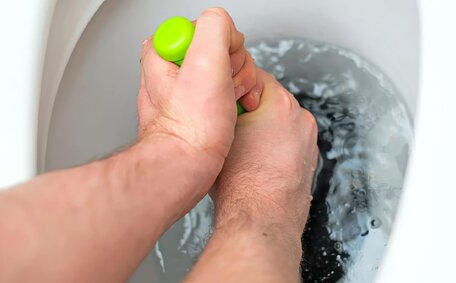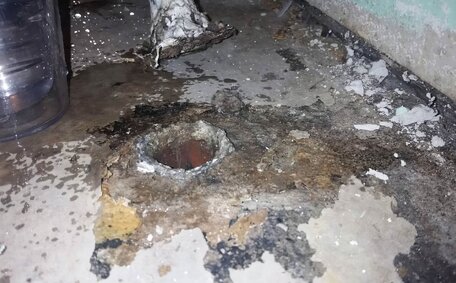Understand Your Plumbing System
Understanding the basic plumbing of your main home is essential for effective DIY maintenance. At a basic level, familiarising yourself with components like pipes, shutoff valves, faucets, toilets, and water heaters enables you to spot problems early and carry out simple DIY repairs.
Understanding each part’s function, location, and the system responsible for water supply or wastewater removal can empower homeowners with home maintenance knowledge. This practice not only safeguards against expensive issues but also protects the health of the plumbing system for many homeowners.
Knowing where to locate and how to engage the shut off valve leads to swift water supply cessation in case of leaks. Knowing typical pipe routes helps pinpoint leak locations faster too. Similarly, inspecting water heaters can uncover corrosion, helping keep your plumbing system in top condition before any failure ensues.
Ultimately, integrating these regular maintenance tips with your knowledge positions you to make better decisions for your home’s maintenance. Partnering this knowledge with annual professional check-ups ensures maintenance can uncover potential issues, keeping your system in peak condition.
Create a Maintenance Schedule
Incorporating regular plumbing tips into your home care routine enables proactive issue management. Mark routine inspection reminders in your calendar, noting checks like:
- Monthly: Check for any leaks, monitor water pressure and flow, listen for unusual sounds, and stay vigilant for signs to shut off water when needed.
- Quarterly: Inspect your exterior pipes, hoses, irrigation for damage.
- Biannually: Carry out your water heater flushing to clear sediment.
- At least once annually: Professional assessment of critical elements, including your hot water systems.
Following these tips help keep your plumbing maintenance consistent can dodge the need for costly repairs, which can save money in the long-run. Install watersaving fixtures which can help prevent potential problems before they arise, make sure pipes can be sufficiently insulated, and ensure your home plumbing system maintains correct pressures. Respond right away to any irregularities that surface between planned inspections.
Arming yourself with practical knowledge and valuable tips facilitates the upkeep of your plumbing, while a professional plumber can tackle complex issues. But when it comes to getting any complex plumbing job done, our licenced pros have the expertise to diagnose issues accurately and prescribe solutions to keep your system operating optimally.
Regularly Inspect Pipes and Fixtures
Conducting thorough inspections of your plumbing fixtures can take care of preventing oversights that might necessitate future repairs.
Check your pipes monthly through visual inspections for signs of leaks, corrosion, cracks, or dents. Small leaks can cause considerable flooding inside your dwelling or damage if overlooked. Replace your old and visibly deteriorated pipes without delay.
Examine pipe joints intermittently for seepage, and listen for gurgling sounds which can indicate potential clogs. Immediately address leaks or anomalous sounds.
Regular checks on faucets, showerheads, and toilets help keep your pipes in pristine condition. Look for drips, cracks, or loose connections requiring a simple tightening. A slow toilet fill can also indicate an impending problem needing attention.
Being vigilant about regularly inspecting plumbing components through sight, sound and touch keeps minor issues from becoming big headaches. We advise documenting abnormalities and contacting our licenced professionals promptly, as minor concerns can become critical if ignored.
Properly Dispose of Waste
Responsibly disposing of waste can help avoid plumbing clogs, leaks and backup issues. Never pour fats, oils or grease down drain, or your garbage disposal - these can quickly solidify and coat pipes. Allow cooked oils to fully cool then get rid of them by discarding in the rubbish.
Additionally, be cautious about what you flush down the toilet, avoiding foreign objects like wipes and sanitary items that could snag pipes. Always use a bin, avoiding the toilet where tree roots can cause additional blockages.
Harsh chemical drain cleaners seem a quick fix but can pose health risks and can damage pipes and your well-being. Try using harmless alternatives such as vinegar, baking soda, or commercial enzyme-based cleaners.
Better to call professional help rather than forcefully plunging a blocked toilet, as this risks cracking the bowl or dislodging pipes. Gently attempt a plunger first, but for significant or recurring clogs, call us.
Stay mindful of what washes down your drains. We offer professional hydro jetting and drain clearing services that helps get rid of serious blockages if they arise. However, adopting the most effective waste management practices significantly diminishes the risk of the most common plumbing issues.
Maintain Proper Water Pressure
Keeping tabs on your water pressure is essential to maintain the well-being of your plumbing. Excessively high pressure can stress pipe joints, causing leaks over time. Regulating water pressure to stay within 35 to 80 PSI helps mitigate wear tear on plumbing fixtures.
Affix a budget-friendly water pressure gauge to the hose bib to check water levels that can affect your plumbing. Consistently high readings above 80 PSI indicate a regulator is needed to prevent premature plumbing wear.
Identify your main water pressure regulator to maintain a sustainable water pressure level. If absent, plumbing additions may necessitate a regulator’s installation to moderate pressure. Alternatively, adjust the existing regulator down until the gauge shows 60 PSI for optimal flow.
Routinely inspect plumbing components for signs of leakages indicating excessive pressure, ascertaining where main valves may require adjustments. Small drips can escalate and damage your home quickly if ignored. Should pressures persist above 80 PSI despite regulators, a plumber should examine your system.
Keeping water pressure moderated preserves plumbing integrity. But if installations or adjustments seem complex, our licenced professionals have the expertise to correctly size, place and tweak regulators to safeguard your pipes.
Address Leaks and Drips Promptly
Detecting and resolving leaks swiftly with regular inspections helps preserve plumbing and avert severe damage to your property. Inspect fittings like taps, showerheads and toilet cisterns monthly for drips or seepage. Also check the underside of sinks, listening for signs of leakage.
Should your shower taps drip, first try making them tight just enough with a soft turn of a wrench. Make sure to replace worn washers or gaskets, as they often need replacing to stop drips. Alternatively, contact our licenced team for speedy diagnoses and solutions if leaks worsen or originate from inside walls.
Never ignore drips assuming they are harmless, as even a small plumbing issue can escalate. Even small leaks can quickly saturate drywall and flooring if neglected. Be especially vigilant checking exterior taps and garden hoses for winter freeze damage resulting in cracks allowing water ingress.
Ultimately, addressing drips promptly provides diligent care for your plumbing pipes and helps keep your home safeguarded against water damage. Minor faucet leaks left unchecked proximate to electrical outlets also introduces electrocution hazards. For timely leak detection and repair, don’t hesitate to call expert technicians from our responsive team 24/7.
Prevent Clogged Drains
Clogged drains are a hassle but usually preventable with awareness about what substances water can carry down pipes. Avoid pouring fats, grease or oil down sinks as these substances can easily clog your drains by quickly solidifying to form coatings. Allow cooked oils to fully cool then discard in the rubbish instead.
Further, refrain from flushing foreign objects down toilet bowls. Always use a bin for these. Hair, wipes, sanitary items and other debris easily snag in pipes.
For minor blockages, its important to know that baking soda and vinegar can help clear drains when followed with hot water.
However, if complete obstruction occurs with overflowing water, you’re likely facing a plumbing emergency, therefore immediately turn off the water supply via the main shutoff valve. Attempting forceful plunging risks cracking your toilet or tiles. Contact our professional drain specialists promptly to accurately clear any severe blockages while preventing pipe damage.
Insulate Pipes in Cold Areas
Its crucial to shield water pipes from freezing temperatures to prevent bursts and subsequent water damage. So for homes in cold climates, properly insulating pipes is crucial preventative maintenance.
Begin by examining areas with uninsulated piping exposed to the elements, like exterior walls, unheated basements or crawl spaces. These pose the highest risk for winter freezes.
Your local hardware store stocks various DIY pipe insulation products designed to protect your water supply. Choose materials rated for extreme cold if outdoors, or milder temperatures for indoor application. Rubber foam tubing slid over pipes provides user-friendly option.
Measure and cut tubing to size.
Seal junctions with adhesive tape so no gaps remain for cold air exposure. Similarly, wrapping pipes in quality insulating tape gives protection. Similarly, wrapping pipes in quality insulating tape gives protection.
Installing heat trace cables warms pipes. Run their length and connect to a GFCI outlet according to instructions. Alternatively, allowing cold water taps to slowly drip during subzero temperatures can prevent freezing.
For insulating complex areas of your house or choosing the right materials, seeking professional guidance from our plumbing company is critical for optimal seasonal protection.
Install High-Quality Filtration
High-quality water filtration systems are essential to maintain your plumbing and remove sediments, hard water minerals, and contaminants. Multi-stage systems filter out chlorine, metals, microbes, and scale-causing minerals from supply lines and fixtures.
Faucet-mounted filters conveniently strain smaller particulates. Consider 3-stage under-sink or whole-house set-ups for comprehensive clean water filtration. Choose systems sized appropriately for household water use.
When selecting filtration, check certifications like NSF listings for safety and performance. Consider the micron rating, flow rate and lifespan. Opt for easily replaceable filters, switching every 6-12 months depending on usage and water quality.
RO systems thoroughly filter water but can waste up to 75% from continual backflushing. Look for efficient ‘permeate pump’ RO units to reduce wastage while benefitting from pure water.
Ultimately, high-grade filtration reduces contaminant exposure and preserves plumbing by trapping corrosive particles. Partner with our licenced team if needing advice selecting suitable systems or installations.
Know When to Call a Professional
While sensible DIY efforts help maintain plumbing integrity, certain repairs or installations warrant a licenced professional’s expertise.
Seeking reputable plumbers for complex diagnostics or issues involving gas lines, sewer connections, whole-home water filtration, pipe rerouting, pressure regulation, and heater installations guarantees expert service protecting property.
Further, attempting forceful drain cleaning can occur with risks of cracking pipes or toilet bowls. Similarly, incorrectly adjusting regulators can make it challenging to moderate pressure as needed. Experienced plumbers do more than just remedy such issues; they provide peace of mind.
Extensive leaks causing structural water damage require immediate remediation exceeding typical homeowner capabilities. Technicians skillfully detect breach locations and prescribe appropriate repairs.
Ultimately, when it comes to plumbing problems, acting swiftly but recognizing your DIY limits can lead to prevention of minor problems from escalating. Leverage our licenced team’s decades of combined experience for expert troubleshooting and modern solutions guaranteeing your plumbing’s health.






